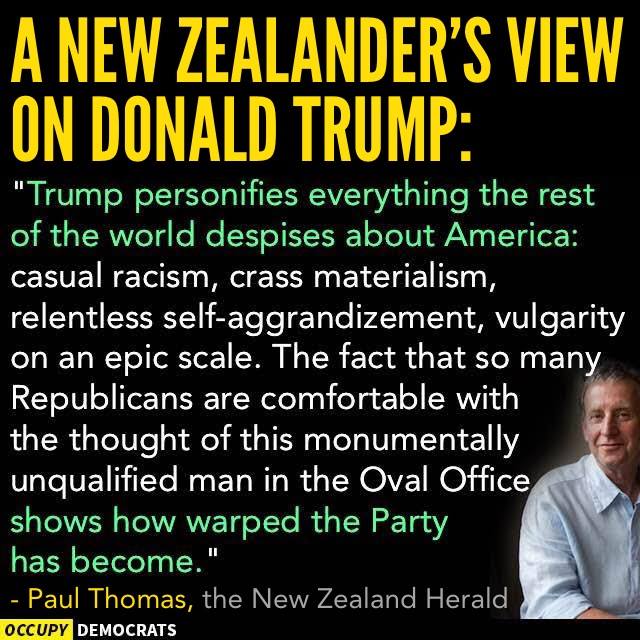The question should be framed as "How many Republicans must propose (or vote for) racist policies before it can be labeled as racists, which would be answered with it's majority", not how many of it's politicians, since the current batch of Presidential candidates only seems to represent the extreme right of the party (whom I consider a minority and not in anyway representative of my Republican ideals, so not worth being applicable to labels). The opinions of a few bad apples should'nt have the power to give the entirety of its group with any kind of label, especially when not representing its majority.
The problem with framing the issue like that is that it is the politicians-
who were elected by the members of the party- who are in positions of power and are advocating and passing laws that either have disparate impact or are outright discriminatory.
Now, it is a reality of American politics that the majority of eligible voters usually do not vote, not just in general elections, but also within the parties themselves. However, goodly numbers of those "bad apples" are commanding the lions' share of those who DO vote.
So, either the majority of GOP members are voting for EXACTLY the radical politicians they want- which I do not believe- OR the majority of GOP members are opposed to the rise of the radical right, but too many of those opposed are not exercising their right to vote. I think the latter is far more likely, given the aforementioned state of American voter apathy.
But as Geddy Lee sings in Rush's "Freewill", "if you choose not to decide, you still have made a choice." By not voting, those abstaining are complicit in the ascension of polarized politicians.
The result: a party probably composed mostly of moderates and liberal conservatives disproportionately represented by radicals. Radicals pushing agendas harmful to American people and the political system.
And it is a group's actions that define its image, not the individual members. Especially when the group is acting under the guidance of those elected to represent those members.
Aesop's fable of "The Farmer and the Stork" tells us we are known by the company we keep:
http://www.litscape.com/author/Aesop/The_Farmer_and_the_Stork.html
Unfortunately in American politics today, its seems that only the extreme left or the extreme right have a chance at winning Presidential elections.
AFAIK, no truly extreme left politician has ever won a national election, and I can't think of any radical left governors, either.
Meanwhile, the extreme right has, so far, failed to win a presidential election.

